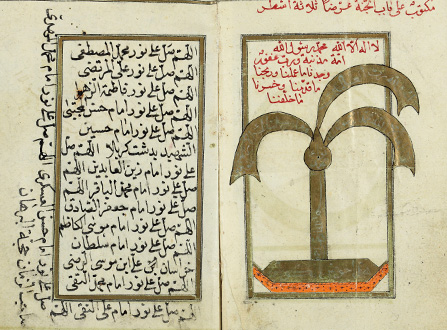Professional communication across languages and cultures [electronic resource]
لتكبير النص لتصغير النص- كتاب
The aim of this paper is to analyse the usage of address forms in written professional communication in Brazilian Portuguese and Romanian. The corpus consists of two types of data, authentic workplace documents (especially from private companies) and templates from two recently published business correspondence textbooks in Romanian and Brazilian Portuguese. After comparing the textbook language against data from contemporary authentic letters or e-mails, I observed that on daily basis speakers tend to be less formal and prefer the T pronouns or the first name address in their interactions wit
| العنوان |
Professional communication across languages and cultures [electronic resource] / edited by Stanca Măda, Răzvan Georgian Săftoiu. |
|---|---|
| الناشر |
Philadelphia : John Benjamins Pub. Co. |
| تاريخ الإصدار |
2012 |
| ملاحظات |
Description based upon print version of record. Includes bibliographical references and index. English |
| رقم الرف |
Professional Communication across Languages and Cultures Editorial page Title page LCC data Table of contents Introduction: Understanding the dynamics of dialogue at work 1. Introduction 2. Professional communication 3. Theoretical and analytical frameworks 4. Key aspects in analysing professional communication 5. Integration through communication 6. Structure of the volume References Part I. Dialogue and identity in professional settings Leadership and intercultural competence at work 2. Theoretical framework 3. Database and methodology 4. Analysis 5. Discussion6. Conclusion Professional action games. Theory and practice 1. The issue 2. Object and methodology: From reductionism to holism 3. Deriving types of action games 4. Business games and the influence of culture 5. Sample analysis 6. Conclusion Managing the director's views. Decision making in a small firm context 2. DM in small businesses 3. Identities "in action" 4. Doing DM, doing power 5. Method and data 6. Negotiating the director's views by creating a common front 7. Status over expertise in challenging a decision 8. Negotiating a suggestion by drawing on personal standing9. Resisting and ratifying decisions 10. Conclusions Discursive hybridity at work 2. Data collection 3. Ways of dealing with hypothetical scenarios 4. The construction of narratives 5. Bracketing of small talk Appendix 1 'Doing' trust in workplace interaction 2. Literature review 3. Research method - Conversation analysis 4. Data 5. Analysis 6. Observations and conclusions Part II. Functions and strategies in professional communicationControl acts in Romanian 2. The 'grammar' of control acts in Romanian 3. Case study. Control acts in Romanian workplace correspondence 4. Conclusions Acknowledgement Corpus Mitigation at work. Functions and lexical realisations 1. Institutional talk and intercultural communication in multinational companies 2. State of affairs 3. Mitigation 4. Mitigation in the workplace 5. Conclusions Moderation techniques in meeting management 1. Workplace meetings - a complex communicative context2. Aims of the study and methodological considerations 3. Moderation - method and tool Appendix Small talk - a work of frame 2. Looking for a definition of small talk 3. Initial, median and final phatic sequences 4. Transitional small talk in the workplace 5. Jokes - a means of achieving transitional small talk Part III. Specific issues in professional communication Translation as a form of intercultural workplace communication 2. Workplace communication and the interdisciplinary nature of Translation Studies |
| سلسلة |
Dialogue studies v. 17 |
| الشكل |
1 online resource (290 p.) |
| اللغة |
الانكليزية |
| رقم النظام |
997010720128505171 |
MARC RECORDS
وسوم
- Interpersonal communication.
- Intercultural communication.
- Business communication.
- Communication in organizations.
- Discourse analysis Social aspects.
- Organizational communication
- Administrative communication
- Communication, Administrative
- Communication, Business
- Communication, Industrial
- Industrial communication
- Cross-cultural communication
أتعرفون المزيد عن هذا العنصر؟ وجدتم خطأ ما؟

 سجل الدخول باستخدام غوغل
سجل الدخول باستخدام غوغل
 تسجيل الدخول باستخدام فاسيبوك
تسجيل الدخول باستخدام فاسيبوك



